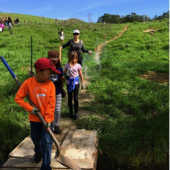
Future casting for us begins with going back — to the real basics, to understanding our place and the people who sustained themselves here for hundreds of years, engaging in real-world problem solving in pursuit of “the right kind of change at the right time.”
Continue Reading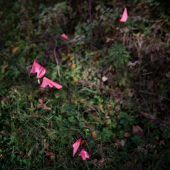
Abstract: As native Midwestern prairie and savannah landscapes continue to be destroyed, some environmentalists are working to reconstruct the prairie and savanna ecosystems that greeted European settlers a century and a half ago. This series of photographs engages those reconstructed landscapes and considers the fundamental question of what we consider natural. As many of these sites are used for educational and scientific purposes, this series also engages how the arts can contribute to our understanding of place.
Continue Reading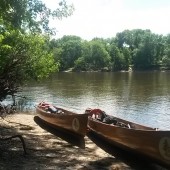
We report an evaluation of a place-based education (PBE) teacher professional development program that aimed to understand the perceived impact of PBE on students and teachers, constraints to implementation of PBE in schools, and strengths and limitations of the professional development program, as identified by teachers. Nine teachers, the full 2014 cohort of participants in Wilderness Inquiry’s PBE professional development program, completed a written reflection exercise and were interviewed following the implementation of a PBE lesson or unit developed as part of their professional development program. Findings indicate that teachers perceived PBE to have several important impacts on students, including stronger engagement in learning, enhanced collaboration, and heightened significance for the concepts learned. Teachers also perceived impact on themselves, including professional growth, sense of fulfillment and an expanded repertoire of teaching approaches. However, there were perceived constraints to implementing PBE, including support from peers and administrators, time, money, weather, and the composition of the class. This research adds to a growing body of research reporting positive impacts of PBE. Teachers’ feedback on the professional development program highlighted specific aspects of an effective professional development program. An enhanced understanding of the benefits of and challenges to PBE and program characteristics that maximize teachers’ time at a professional development program will help educators and curriculum developers to better support, develop, and encourage the implementation of PBE in standardized curriculum.
Continue Reading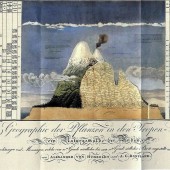
Book review for The Invention of Nature: Alexander von Humboldt’s New World by Andrea Wulf
Continue Reading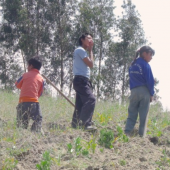
This article relates experiences with two informal education centres established in indigenous communities in Ecuador’s central highlands to the dynamics and ideas of ‘ecopedagogy’, suggesting that the critical, reflective and cooperative actions undertaken in these centres speak constructively to the liberatory and justice-focused practices of ‘Earth pedagogy,’ and to the development those practices foster of skills for a just and sustainable way-of-life. It draws on ethnographic fieldwork in the region that focused on indigenous struggle, land-related conflicts and water justice, and develops the idea of ‘to inherit/intend’ to capture the emergent qualities of ‘place’ as experienced in these two particular locales. Both ‘Centros de Formación’ – Education-Creation Centres – pursue conscious attempts to direct education toward a reflective engagement with place, position and struggles for social justice. In the process, they offer insights for processes of cooperation and resistance that counteract domination and marginalization.
Continue Reading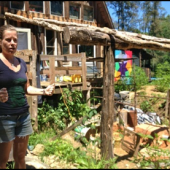
Place can be understood as space endowed with meaning, evoking notions of difference, connection, attachment, and emotion. As processes of modernity and globalization have increasingly homogenized cultural and natural landscapes, place is said to be ‘thinning’ or lost, linked to widening rifts between social and natural worlds. Such homogenization globally has sparked concerns, as people perceive landscape loss and increasing socio-ecological injustices. One such system of homogenization and unsustainability is industrial agriculture, a system that has shifted smaller scale, place-based, and diverse food systems to a global, mechanized one, distancing production from consumption, disrupting communities, and obscuring awareness, understanding, and care.
Yet, as consumer awareness increases and people desire to know where their food comes from and who produced it, inclusive place-based food systems can provide reconnections amongst producers, consumers, community, and the more-than-human world. In this paper, stemming from research in western North Carolina, we bring together literature from scholars of place, agro-food studies, education, and tourism to investigate the role of place in local food systems as well as the potential of small-scale sustainable agricultural places to serve as important educational spaces via community-based farm tourism. To better understand such potential, we draw on a study of the Blue Ridge Women in Agriculture High Country Farm Tour, an annual tour of small-scale sustainable working farms in the North Carolina High Country. Delving into participating producers’ philosophies, practices, and stories reveals passionate sustainable producers firmly rooted in place, while exploring consumer motivations for and impacts of participation makes a strong case for community-based farm tourism and other environmental tourism projects as an avenue for place-based education, community socio-ecological resilience, and sustainability across scales.
Continue Reading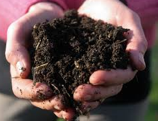
This personal narrative illustrates the role composting has played in the author’s connection to place throughout her adult life, and informs her scholarship today. Over the past twenty-something years she lived in close to twenty different homes, and yet always found space and time to create a compost/planting pile. The outcome is that between her efforts, kitchen scraps, and dishwater the soil gained fertility, and she too connected more deeply with each element. The essay proposes that home and community composting practices can inform our view of learning, shift educational paradigms, and help address the complex environmental and social concerns we face today.
Continue ReadingThis piece examines narratives of place from diverse actors who engage with forests in the Yukon Territory, Canada. In examining personal stories of forest experience, I show how a single locality can be multiple places. In addition, this work focuses on the ways in which stories of experience are also expressions of legitimacy and belonging. What is shown are the varied mechanisms of engagement, the diverse places created, and the voices which are at once individual and influenced by a broader social context. As educators I argue we need to examine overlapping narratives of place. Through focusing on experience the intersecting nature of different localities becomes clear. As does the necessity to situate such narratives within their broader context, one within which experience is a key aspect of determining the legitimacy of land-use voices.
Continue Reading
Place is more than an environment – it is about the activities, memories, and relationships that are a part of it. It has a history. This essay is about the places that are a part of a relationship and experiences with a family member. It entangles memories of childhood, war, politics, learning, and the simplicity of mountain tops. As this essay examines, the materiality of an environment is much more than mere matter and becomes inseparable from relationship and meaning.
Continue Reading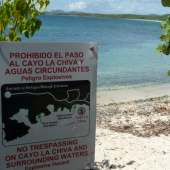
This article draws on Heidegger’s philosophy to bring a phenomenological perspective to bear on the question of place. By revealing dynamic human and natural histories, narrative can be a particularly useful tool for orienting our environmental commitments. I share stories from Vieques, Puerto Rico, an island shaped by trauma, to illustrate the power of people articulating what they most value about the places they call home.
Continue Reading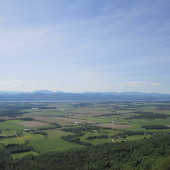
This case study describes the experiences developing and teaching a course entitled “Understanding Place” at the Middlebury School of the Environment 2015 summer session. The course sought to include multi-disciplinary approaches to place while simultaneously engaging students and faculty in hands-on projects across the Champlain Valley in Vermont. Rather than engaging in depth with specifics of environmental history in the Champlain Valley, however, students were asked to apply the multiple perspectives encountered in the course to develop elements of a “toolbox” related to understanding the significance of place in a world increasingly characterized by globalization and mobility. In other words, rather than learning complex details and history of a singular place, students developed perspectives for understanding, valuing, and protecting the many places where they may live throughout their lives. At the conclusion of the course students were asked to teach other members of the Middlebury community about their findings. This collaborative effort over six intensive weeks between students and faculty resulted in a creative pedagogical tool—an “understanding place cookbook”—that was shared with all School of the Environment participants, faculty, and staff. While this case study is grounded in the specific context of the Middlebury School of the Environment, it points to tools and experiences that could be useful for developing globally aware place-based education at any institution, bringing an appreciation of global stratification and inequality into localized efforts toward community sustainability and resilience.
Continue Reading
Abstract: This article describes the connection between love and one’s “home”. It is this love and a strong sense of place or connection to one’s home that ushers in the need for sustainability
Continue ReadingPDF:SmithSpring2014 Key words: Sustainability Education, state of the field, place, community, problem-solving, action When trying to consolidate my thinking about sustainability education in preparation for a talk a few years ago, I asked myself two questions: What is sustainability? And what kinds of people seem most likely to help humanity move in that […]
Continue Reading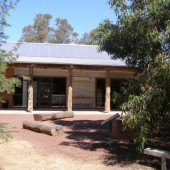
Place-based education is education that is “grounded in the resources, issues, and values of the local community and focuses on using the local community as an integrating context for learning at all levels” (Powers, 2004, p. 17). The purpose for becoming conscious of places in education is to extend “notions of pedagogy and accountability outward, toward places” making learning more relevant to “the lived experiences of students and teachers… so that places matter to educators, students and citizens in tangible ways” (Gruenewald, 2003, p. 620). Although place-based education is interchangeable with a number of terms – community based learning, rural education, project-based learning, service learning, and sustainability education – it encompasses a broad hope by educators to connect student learning to their community and the community to participate in the school (Powers, 2004). Situated within this partnership between school and community fostered through place-based education is the opportunity for rural-regional sustainability. In particular, the case study showcases how a school and community in rural south-east Australia have regenerated a degraded community stock-reserve to ‘tear down’ the school walls (fences) and perform place through the (co)creation of the Flatlands Nature Reserve as a place of protection, regeneration and environmentally sustainable practices. Furthermore, the story of the Flatlands Nature Reserve shows that “place is not only local, specific and static” but can be seen as a ‘revitalizing of the commons’ (Bowers, 2005) which has co-created a place of bio-diversity, regeneration and sustainability education that has fostered rural-regional sustainability.
Continue Reading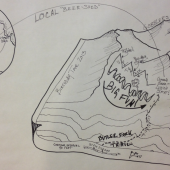
The socioecological challenges we face have never been so complex, so intractable, and so urgent. And while both justice-oriented education and education for sustainability are growing in colleges and universities across the United States, normative perspectives of outdoor experiential education have fallen embarrassingly behind. In this paper, we offer critical sustainability as a conceptual basis for engaging students in the beauty, perversity, and complexity of our world. Critical sustainability, integrating sociopolitical systems of privilege and oppression with the socioecological imperatives of global health and justice, provides an exciting and promising pedagogical direction. With this conceptual framework, we explore perspectives of “nature,” placefulness, and our multiple, overlapping subjectivities as students, educators, and engaged citizens. Our task as outdoor educators is to bring the faraway nearby and inspire students to engage in the myriad challenges we face as individuals, citizens, and as members of a global ecological community. We conclude by offering place mapping as a pedagogical technique to support elements of critical sustainability in outdoor education settings and beyond.
Continue Reading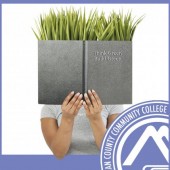
PDF: le Roux Ohm Winter2013 Abstract: Drawing on various dimensions of place, pedagogies of place, and the relationship between place and design, this article presents a case study of place-based learning in a career-oriented higher education program—the Green Building Maintenance and Management program at SUNY Sullivan. This program is rooted in the Catskills, an iconic […]
Continue Reading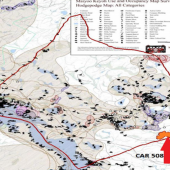
Effective bases of environmental decision-making build upon multiple and divergent understandings of landscapes and landscape connection. This paper develops ‘ethnogeomorphology’ as a tool for developing a shared (if contested) landscape platform for sharing worldviews and perspectives. Interfaces of intercultural communication, particularly with many Indigenous knowledges, are spaces of crucial juncture in understanding challenges of environmental and social sustainability and their relevance extends far beyond only ‘Indigenous studies’. Methodologies that aim to empower many Indigenous communities in documenting their knowledges can fail when attempting to communicate them in terms of conventional cause-and-effect science based on assumptions of linear and static spatial perspectives. This paper documents one such failure in practice with the Maiyoo Keyoh in Canada, and draws upon research conducted with the Yorta Yorta Nation (south-eastern Australia), the Stò:lō Nation (British Columbia, Canada), the Maiyoo Keyoh (northern British Columbia) and the Tia Kina Te Taiao (in New Zealand), from 2007-2011. Emerging insights in geography offer critical insight in addressing some of these challenges in practical ways, as increasing unrest in ‘physical’ disciplines (such as geomorphology), contest traditional binaries between ‘physical’ and ‘human’. This paper argues that geomorphic landscapes themselves are good learning tools that illustrate dynamic time-spaces. Recent developments around concepts of emergence, contingency and complexity, addressed through system-specific applications, point to reengagement with ‘place’. Similarly, conceptual developments in human geography see concepts of “scale as relation” rather than ‘scale as level’, also offers synergistic perspectives with physical geography founded on seeing multiple scales simultaneously. This solid grounding of coherence in geography could contribute to a practical and grounded basis of sustainability. Rather than being limited to theoretical debates, this paper illustrates the potential of a hybrid geography in practice. This convergence/hybridity in perspectives is not a conflation of knowledges, but an opportunity for situating worldviews in dialogue, assisting efforts to decolonize intercultural communication and promote ethical engagement in practice. This ‘ethnogeomorphic’ perspective offers a reconsideration of the term ‘adaptive’ in ‘adaptive management’, framed around multiple connections to landscapes, rather than as a tool restricted to Western science.
Continue Reading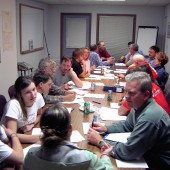
Greg Smith shows us, through his numerous interesting real-life educational stories, how place- and community-based education can bring a true spirit of opportunity to public school students. He argues that true sustainability will come about through local efforts of the current generation of students to guide and form our future.
Continue Reading